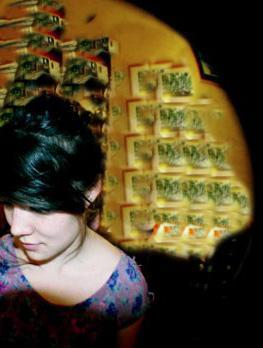Lo-fi recordings tend to come under scrutiny these days. Ever since the explosive, devisive release of Wavves’ self-titled first album, this issue has been floating around. And if you subscribe to the general drivel of music criticism (this could be considered some), lo-fi recordings seem to be vastly on their way out (as do bedroom style reverb vocals, which I hope never fade away), unless the genre tackled is covering new territory- see How to Dress Well‘s work, the lo-fi instantiation of indie meets R&B.
The affectation of lo-fi may be worth some small contention here. When a musician with the spending bread goes into the studio to record an album or EP and uses the studio magic mixing and effects to procure that faraway garage resonance, it seems counterintuitive and possibly even fake as to what a "studio" recording should be. I was actually disappointed to hear Wavve’s second album sounding so clean, in some small way, it seemed to be a concession to his critics, an acknowledgement of the imperfections of his first recordings and an attempt to convince people that he was actually a stellar craftsman. These are all aesthetic choices of course, and the general white noise aura of lo-fi has its own characteristics of merit to aesthetes of sound, as well as its pitfalls- not to imply that someone is not an aesthete if they do not appreciate lo-fi, I’m merely saying that it’s oftentimes a cultivated taste.
Mary Mary, the lo-fi Bellingham based indie project of Alexandra Song, Geoffrey Trager and Zach Zinn, just put out their demos, which were recorded on cassette tapes, with French Camp Records. The tender, angsty authenticity of these recordings I find engaging and accurately reflective of the sentiments contained within their lyrics and compositions. Long live perfect imperfection.
